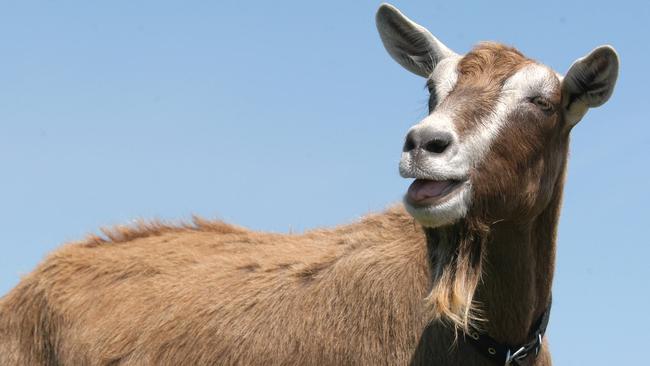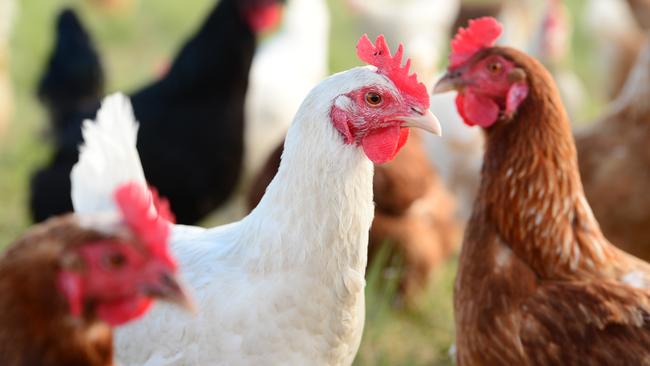Animal activists don’t have a clue about farming
A plant-based society may sound utopian for some, but the reality is that extremists pushing their agenda don’t have a clue when it comes to the lay of the land, writes Ed Gannon.
Rendezview
Don't miss out on the headlines from Rendezview. Followed categories will be added to My News.
While much attention has been paid to the far-right race protest at St Kilda on the weekend, another recent protest also deserves scrutiny.
The invasion of a Gippsland goat farm by 70 animal activists late last month is equally worthy of condemnation. The Gippsland gathering involved an alleged crime, with the removal of livestock from the property — and that’s not taking into account trespass on a private property.
And while the St Kilda gathering has been blamed on the far right, it would be fair to say the Gippsland case involved the opposite end of the political spectrum.
The attack on the Gippy Goat Cafe in Yarragon is a worrying sign of a bigger picture emerging for farmers.
A complete misunderstanding of normal farming practices, tied to a utopian view of animal welfare, appears to be leading more people to take the view that farming is not just bad, but evil.
Yet many of these people enjoy the benefits of modern farming without even knowing it.
RELATED: I’m vegan and PETA is making us all look bad

They fail to understand the domestication of livestock over thousands of years — and the consequences of reversing this — and promote causes such as “Veganuary” with no understanding of the environmental consequence for the planet of an entirely plant-based diet through deforestation and increased chemical use.
There are other examples of the hypocrisy of those who oppose farming.
Recently, The Weekly Times revealed the skewed nature of the RSPCA’s membership, caught out when it tried to hijack a survey on the caged egg industry.
In doing so it allowed the survey’s organiser — the CSIRO — to isolate and analyse the responses from the RSPCA members.
That analysis revealed almost 80 per cent of the RSPCA respondents were women, compared to 52 per cent of the wider survey respondents, had more postgraduate qualifications, were predominantly employed in education and training or health care and social assistance, spent more on groceries than ordinary Australians and said price was the least important issue when purchasing eggs.
They also admitted they gathered most of their information on the egg industry from the RSPCA, internet and social media. I doubt many would have spoken to an egg farmer to understand how egg production works.

It is a picture of a privileged few employed in secure jobs mostly immune from economic shocks spouting uninformed views on how the great unwashed should lead their lives.
The real impact is that they were trying to shut down the caged egg industry, which provides affordable food for less fortunate families.
Make no mistake — if and when we get to the promised land of only having free-range eggs, the price will climb and not all the eggs will be free-range.
The phrase “first-world problem” is often bandied about.
But what we have seen in the Gippy Goat Cafe and RSPCA-caged eggs cases fits this description. These are privileged people living in a wealthy society that indulges their silly, selfish and, at times, illegal behaviour.
Farmers are kidding themselves if they think they can change the views of extremists — the Gippsland goat invaders allegedly put goats in nappies for goodness sake.
But that doesn’t mean a blind eye should be turned to their destructive ways.
Ed Gannon is publisher of The Weekly Times


